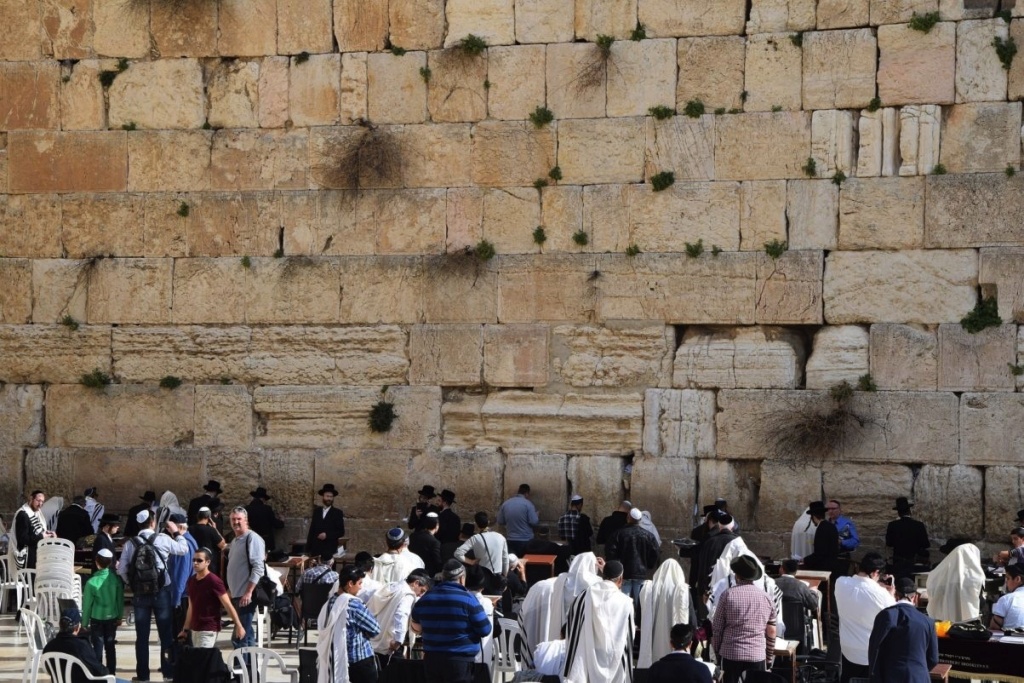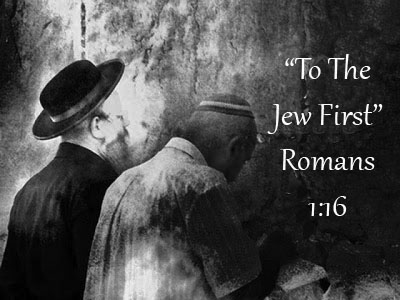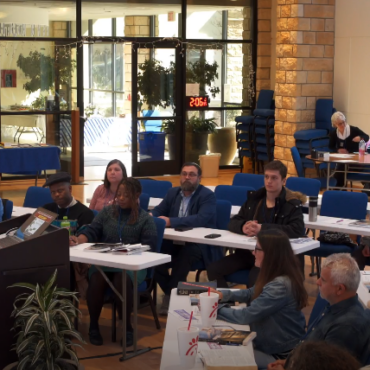Why Israel?

By Sam Nadler
As you read this, we are preparing to return to Israel for our ongoing ministry to Messianic leaders and outreach to unbelievers in the Land. Though some may question why we choose to travel so far every year, understanding God’s plan for Israel clarifies this issue and leads us to pray and do all we can to reach out to Jewish people here and around the world. To help us better understand, let’s look first at Jacob and Leah (Genesis 29), those through whom God chose to birth a nation and ultimately bring the Messiah into the world.
Why Leah?
Though Jacob loved beautiful Rachel, it was through her weak-eyed sister Leah that God chose to most impact the history of Israel and more abundantly bless the world. The priesthood through Leah’s son Levi would foreshadow the eternal priesthood and sacrifice of Messiah (Hebrews 8:5, 10:1). The kingship through her son Judah would provide the Davidic dynasty and the eternal King, Messiah Yeshua.
We read in Genesis 29:31, “Now the LORD saw that Leah was unloved, and He opened her womb, but Rachel was barren.” Barrenness was a genetic family condition for both sisters, just like their Aunt Rebecca and Great Aunt Sarah.
Though God allowed Rachel to remain barren for a longer time, He granted Leah the ability to conceive. But why Leah? Rachel, like the nations of the world, was alluring but spiritually unproductive. Leah was the unlovely and unloved one. In keeping His promise, God chose to use Leah because, in her weakness, she best pictures the people of Israel.
Why Israel?
Like Leah, God chose Israel not because it was the greatest of the nations, but because it was the least (Deut. 7:7-8). Of all the peoples, Israel was the least likely to succeed (apart from God).
Doesn’t it seem ironic that God enabled Abraham and Sarah, an elderly, barren couple not only to conceive, but also to bless “all the nations of the earth” (Genesis 12:3, 22:18)? For, through the unlikely seed of Abraham, Isaac, Jacob and Leah, the blessed Redeemer would come.
In each generation, God continued to choose the least. The unloved, weak-eyed Leah, who had no outer beauty, pictures our Messiah. Just as Leah was not attractive to Jacob, Israel did not find Yeshua appealing to their sight. Isaiah wrote that Messiah would have “no beauty that we would desire Him” and He would be “rejected by men,” yet amazingly fruitful and prosperous, for “He will see His seed” (Isa 53:1-12).
God’s choice of Leah demonstrates that it is not our external beauty, but rather God’s eternal blessing that brings true and lasting fulfillment. Yeshua started His hillside sermon, “Blessed are the poor in spirit, for theirs is the kingdom of heaven” (Matthew 5:3). The Lord’s love is for the unloved and His grace is for the rejected. Those in this position truly understand that apart from Him they can do nothing (John 15:5).
But Why You?
When each of us see ourselves as we truly are, we will acknowledge that in reality, we are poor. Yeshua goes against the grain of all human judgment as it points out in 1 Cor. 1:20, “God has made foolish the wisdom of the world.” His Kingdom is given to the poor, not the rich; the feeble, not the mighty; the unloved, not the desired. Yes, it is “through weakness His power is made perfect” so we may prove that “His grace is sufficient” (2 Cor. 12:9). When we recognize our unloved weaknesses and choose to depend on His grace, then God will use us to be the witness of His everlasting love.
Many believers can feel unqualified to witness effectively to the “lost sheep of the House of Israel.” For instance, Paul was well trained in the Torah, the Hebrew language and rabbinic theology. Yet even with all these credentials Paul was spiritually blind. Only after he was physically blinded could he gain spiritual sight. He could see the crucified One who is the Victor, who overcame death and also saved Paul, and one day would redeem all Israel. Therefore, Paul was unashamed to preach the Good News. He knew that the power to save all who believe is not found in all the qualifications or education that this world can offer, but in Good News alone, “to the Jew first and also to the Gentile” (Rom. 1:16). Like Paul, our main ability to effectively witness to the Jewish people is not in our strength, prosperity or status in the world but by grace alone that God provides. Paul had to become like Leah to be used by God. As with Paul, God sometimes has to make the high places low, for He still chooses the weak and unloved as witnesses of His love and power to all with ears to hear.
Being Unloved
Today, Leah is unloved once again. Following the Holocaust, Israel was tolerated by the nations of the world. But now Israel and Jewish people everywhere are once more the bulls-eye of Satan’s war with God. When Yeshua saw His people, Israel, He felt compassion for them, because they were “harassed and helpless like sheep without a shepherd” (Matthew 9:36). Today, Israel is still without their Shepherd and Yeshua still feels compassion for them. Today the harvest is plentiful and the need for laborers remains great. Consequently, we should seize the opportunity to minister God’s grace to the Jewish people. All local churches and believers can take part in ministering His compassion and grace to “harassed and helpless sheep.”
Being His Instrument
Just as God chose Abraham and Sarah, Isaac and Rebekah, Jacob and Leah, He also chooses us today to point others to Messiah. How will he do this? God keeps His promise and uses each of us just as we are: poor and weak, but trusting in His all sufficient grace and power. Unrecognized by Jacob at the time, Leah was God’s instrument of blessing for Israel’s future; unrecognized by Jacob today, we modern “Leah’s” are God’s present instrument of blessing for Israel. Let us trust in His promises and together reach out to His lost sheep whether they are in Israel, in NYC, or perhaps right next door. For the God of Leah is the Savior of the World.




Add Comment